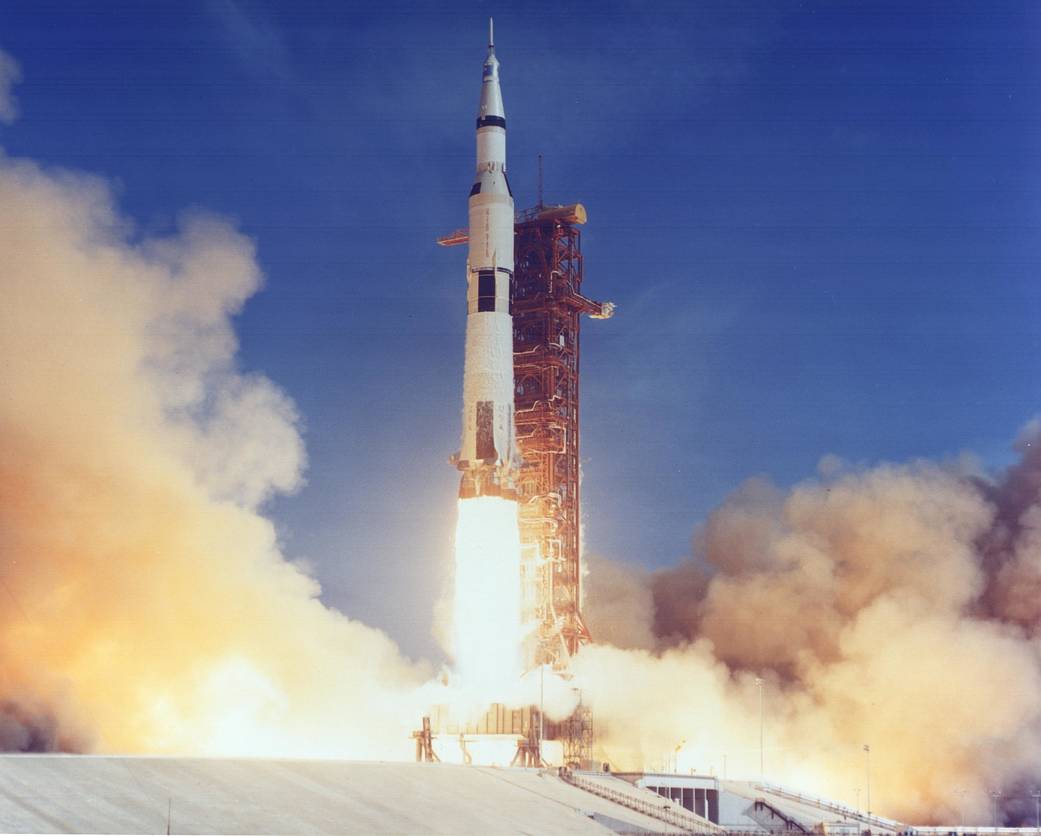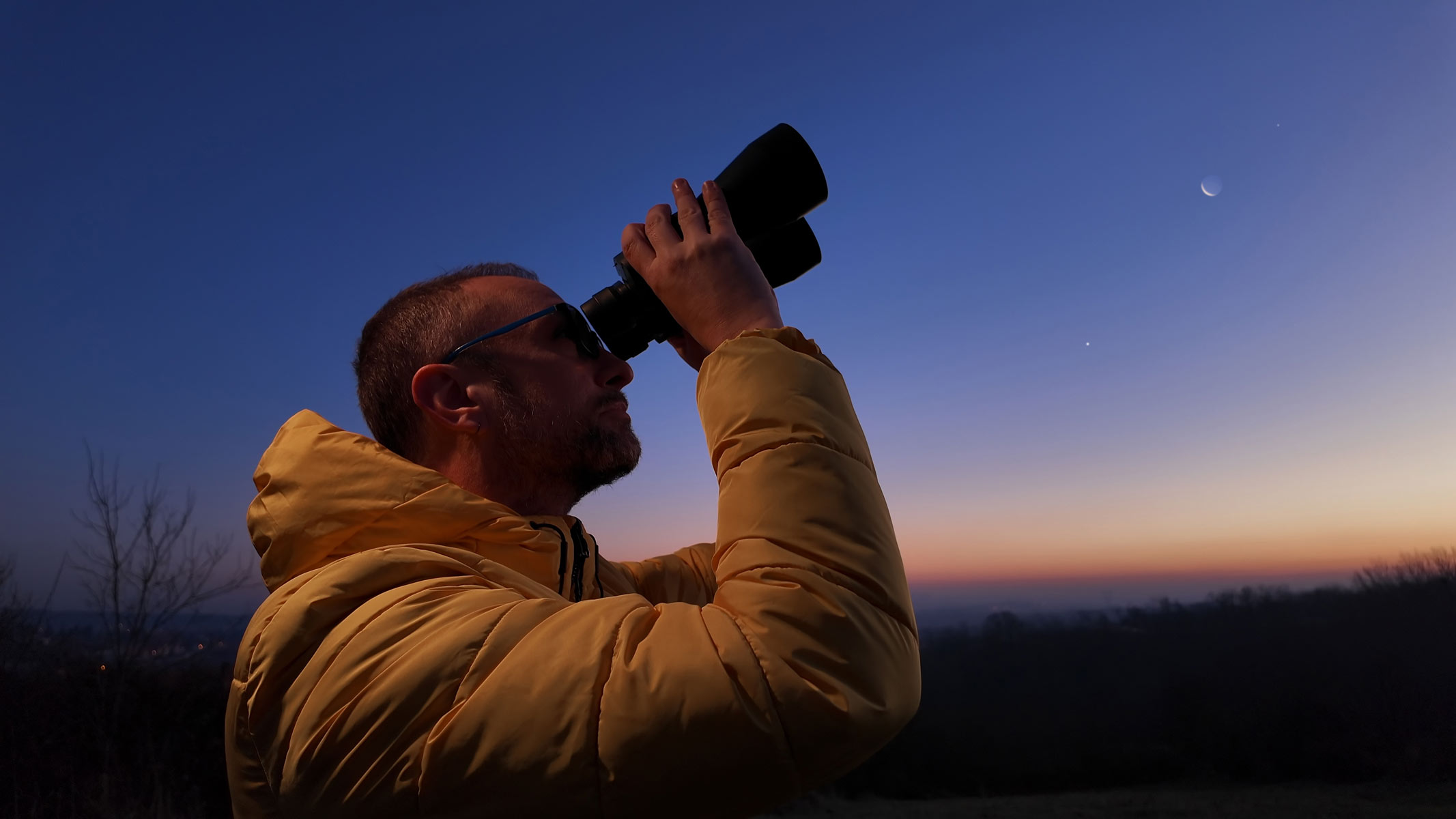50 Years Ago, Apollo 11 Launched to the Moon: A Look Back at the Epic Day
On this day 50 years ago, three astronauts began their journey to the moon.

Today (July 16) marks 50 years since astronauts Neil Armstrong, Buzz Aldrin and Michael Collins began their historic flight to the moon.
By 6:45 a.m. this day in 1969, the astronauts had eaten their steak-and-egg breakfasts, suited up, and had strapped themselves into the spacecraft. The weight of the moment hung thick in the air and the world watched as the crew prepared to make humanity's inaugural flight to the lunar surface.
At 9:32 a.m., NASA's Saturn V rocket ignited and, with 7.6 million lbs. (34.5 million newtons) of thrust, lifted off from launch pad 39A. Perfect weather met the Apollo 11 launch and spectators flocked to Kennedy Space Center and the surrounding area in Florida to catch a glimpse of the 363-foot (111-meter) tall rocket blasting off from Earth.
Related: Apollo 11 at 50: A Complete Guide to the Historic Moon Landing
Related: Relive the Apollo 11 Moon Landing Mission in Real Time
Two minutes and 42 seconds after launch, the rocket dropped its first stage, which fell into the Atlantic Ocean. After dropping the interstage skirt and the launch escape tower, the rocket dropped its second stage. Just ten seconds later, the third stage engine ignited and, just 11 minutes and 39 seconds after launch, the spacecraft reached an elliptical orbit around Earth, traveling at 17,432 mph (28,000 kph).
The spacecraft carried the Apollo 11 crew, along with fuel tanks, fuel cells, tanks of oxygen and hydrogen, supplies and food for the crew, cameras, the Early Apollo Scientific Experiment package, additional scientific instruments and equipment, and tools for collecting samples on the lunar surface.
As the astronauts in the command module orbited the Earth, the lunar module, known affectionately as the Eagle, was nestled safely underneath them. Just a few days after launching from Florida, Armstrong and Aldrin would land the Eagle at the Sea of Tranquility on the moon and step out onto the surface of our rocky satellite.
Get the Space.com Newsletter
Breaking space news, the latest updates on rocket launches, skywatching events and more!
Cold War tensions between the U.S. and the then-Soviet Union sparked the space race. But Apollo 11 had a much greater impact than just the political victory of "getting there first." The mission's successful launch and landing remain cultural touchstones all around the world.
This week, institutions across the country and beyond are celebrating Apollo 11. From parties to educational events and so much more, there are dozens of Apollo events that will be celebrating the incredible launch, landing, and return of the Apollo 11 astronauts and spacecraft.
- How the Apollo 11 Moon Landing Worked (Infographic)
- Apollo 11 Moon Rocket's F-1 Engines Explained (Infographic)
- Apollo-Soyuz: How the First Joint Space Mission Worked (Infographic)
Follow Chelsea Gohd on Twitter @chelsea_gohd. Follow us on Twitter @Spacedotcom and on Facebook.
Join our Space Forums to keep talking space on the latest missions, night sky and more! And if you have a news tip, correction or comment, let us know at: community@space.com.

Chelsea “Foxanne” Gohd joined Space.com in 2018 and is now a Senior Writer, writing about everything from climate change to planetary science and human spaceflight in both articles and on-camera in videos. With a degree in Public Health and biological sciences, Chelsea has written and worked for institutions including the American Museum of Natural History, Scientific American, Discover Magazine Blog, Astronomy Magazine and Live Science. When not writing, editing or filming something space-y, Chelsea "Foxanne" Gohd is writing music and performing as Foxanne, even launching a song to space in 2021 with Inspiration4. You can follow her on Twitter @chelsea_gohd and @foxannemusic.
